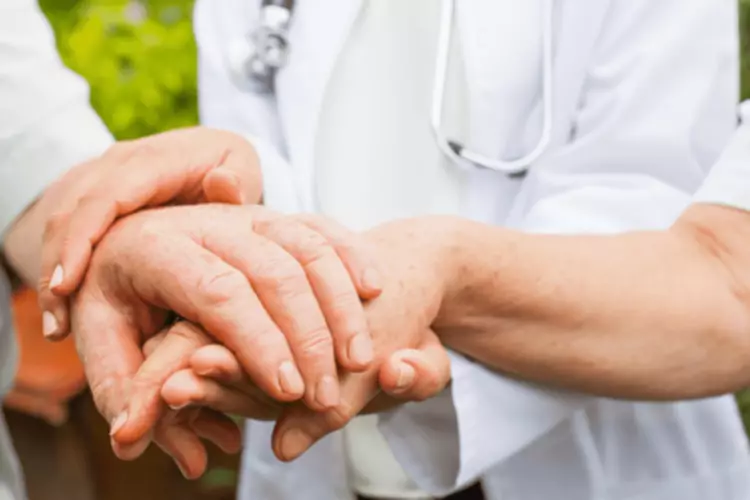
However, after more than a drink or two, alcohol can have the opposite effect. When you stop drinking, you give your liver a chance to repair itself over time. Heavy drinking can take a toll on this organ, leading to other complications. This can affect digestion, storage, utilization, and excretion of nutrients. There is an increased rate of comorbidity between alcohol addiction and other mental illnesses. While everybody is different, achieving a healthy weight is a realistic goal for many people aiming to remain sober.
- If you think about it, drinking alcohol makes it less likely that you will exercise.
- Addressing common misconceptions, such as whether cold water dehydrates or is less hydrating than room temperature water, helps us weed out the truth.
- And we’re not just talking about no more hangovers — though that’s definitely an added bonus.
- The first two are considered negative drinking motives and relate to winding down—using alcohol to “deal with it,” whatever “it” is for you.
- Some of these changes are reversible once a person quits drinking, while others will only stop progressing but not reverse.
What happens after 4 days of not drinking?
While giving up alcohol can be a challenge, it’s important to remember that the benefits are well worth it. Sunnyside uses a psychology-based approach to help you drink more mindfully, no matter what your goal is. You’ll get a 100% custom plan, then what happens when you stop drinking alcohol daily texts to track your progress and help you stay on target. You’ll get a 100% custom plan, then use daily texts to track your progress and help you stay on target. As alcohol is broken down and metabolized by your body, toxins get released.
- Drinking right before bed often disrupts REM (rapid eye movement) sleep, the all-important stage of slumber that may be linked to dreaming, restfulness, and memory.
- Excess alcohol consumption may cause weight gain, which means that cutting out alcohol could lead to weight loss for some people.
- Healthcare professionals can offer support during severe withdrawal symptoms, as well as offer addiction treatment and emergency services to help you on your journey to recovery.
- Mixing NyQuil and alcohol is dangerous and can have serious consequences.
What Are the First 24 Hours Without Alcohol Like?

Nevertheless, people who have AUD should take extra care before suddenly quitting or significantly decreasing their intake as they can experience symptoms of alcohol withdrawal. This is where the central nervous system becomes so reliant on the depressive effects of alcohol that, when a patient stops drinking, their brain stays in a “hyperactive” state. This can lead to symptoms including anxiety, insomnia and irritability, and in more serious cases, hallucinations, seizures and potentially death. Even moderate drinkers can see benefits from quitting alcohol, as it can help support a healthy lifestyle, says McMahon. Symptoms can range from headache, elevated blood pressure, heart palpitations, and nausea and vomiting to tremors, hallucination and in severe cases death. Some of these health benefits apply to those struggling with alcohol use disorder and alcohol withdrawal.
- Fitness is important to your overall health and sense of well-being.
- Of course, the new year is also a popular time to take stock of your health and lifestyle choices, press the reset button, and dive into resolutions such as Dry January.
- Giving up drinking may let you focus on your relationships, work, and health.
- People who drink heavily are about twice as likely to have a cardiovascular event within 24 hours than people who do not drink at all.
- This is because alcohol is a depressant, so when it’s no longer in your system, your body has more energy to work with.
The Benefits of Quitting Alcohol
If you have been drinking heavily and chronically, it is also a good idea to have your detox medically supervised to minimize your risk of potentially dangerous withdrawal complications. After three days, you will likely start to feel more like yourself. However, individuals who have been drinking heavily for long periods of time may still experience some symptoms of withdrawal and may even have hallucinations or delirium tremens (DTs) and seizures. If you want to level up your health, cutting back significantly on alcohol yields several physical and mental health perks. Enjoying alcohol socially in reasonable amounts can boost your mood and help you bond with others. But if you drink alone, or down multiple drinks a day, it could turn into an unhealthy habit.

Beyond the safety considerations, medical detox is a more comfortable, pleasant experience. Your healthcare team will help treat each symptom as soon as it develops and equip you for success. This can help you avoid much of the unpleasantness that can occur as withdrawal symptoms develop. Your insurance plan may cover some or all of the cost of treatment for drug or alcohol addiction.
- Heavy drinkers or binge drinkers should feel more hydrated and less fatigued after 4 days of not drinking.
- Though you can’t tell by looking in a mirror, your risk of cancer, heart disease, liver disease, and kidney disease have all dropped dramatically.
- Acute alcohol withdrawal symptoms can range from mild to severe, and the severe symptoms can be dangerous or even life-threatening.
- In severe cases of withdrawal when symptoms are not treated, a person may experience generalized tonic-clonic seizures, delirium tremens, and even death.
- Of course, it turned out that the scarcity of money, time, and energy had little to do with adulthood and much with my love affair with alcohol.

Gastritis, or stomach lining inflammation, is common in heavy drinkers. You may expect some sleep issues in early alcohol recovery, but the longer you abstain https://ecosoberhouse.com/ from alcohol, the better improvements there are in your sleep quality. When you stop drinking alcohol, you eventually restore elasticity to the skin.
That doesn’t mean people who drink for fun aren’t at risk of developing problems.

You Might Drop Pounds
Other benefits of not drinking alcohol
